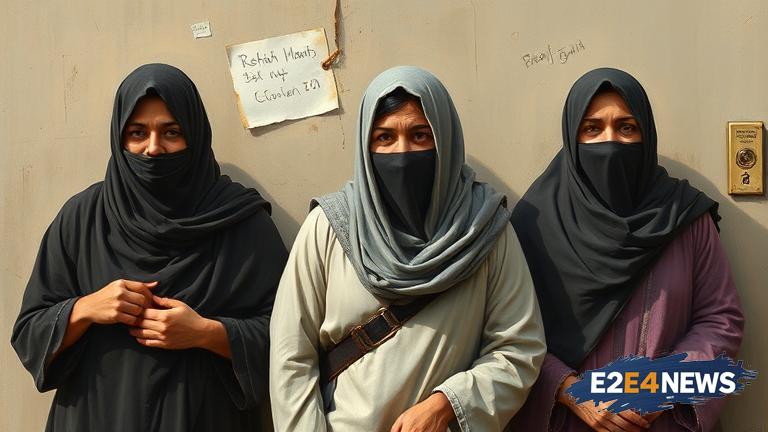The United Nations has voiced its concern over the Taliban’s recent arrest of Afghan women for allegedly violating the group’s strict dress code. The arrests, which took place in the capital city of Kabul, have sparked widespread outrage and condemnation from human rights groups and governments around the world. According to reports, the women were detained by the Taliban’s moral police for not wearing the required hijab and for having their faces uncovered in public. The Taliban has been enforcing a strict dress code on women since it took control of Afghanistan in August 2021, requiring them to wear a burqa or a hijab that covers their face and body. The group has also banned women from working and studying, and has restricted their movement and freedom. The UN has called on the Taliban to respect the rights of women and girls, and to end the practice of arresting and detaining them for violating the dress code. The organization has also expressed concern over the growing restrictions on women’s rights in Afghanistan, including their right to education, work, and healthcare. The Taliban’s actions have been widely condemned by governments and human rights groups, who have accused the group of violating international human rights law. The US, EU, and other countries have imposed sanctions on the Taliban, citing its poor human rights record and its treatment of women and girls. The situation in Afghanistan has been deteriorating rapidly since the Taliban took control, with reports of widespread human rights abuses, including torture, executions, and forced disappearances. The UN has warned that the situation could lead to a humanitarian crisis, with millions of people at risk of starvation and poverty. The international community has been calling on the Taliban to respect the rights of all Afghans, including women and girls, and to work towards a peaceful and inclusive solution to the conflict. The Taliban’s actions have also been criticized by Muslim scholars and leaders, who have argued that the group’s interpretation of Islamic law is misguided and that the Quran does not require women to wear a burqa or hijab. The issue has sparked a debate about the role of women in Islam and the interpretation of Islamic law, with many arguing that the Taliban’s views are not representative of the majority of Muslims. The UN has urged the international community to take action to support the people of Afghanistan, particularly women and girls, and to work towards a peaceful and stable future for the country. The situation in Afghanistan remains volatile, with ongoing fighting and instability, and the international community is calling for a peaceful resolution to the conflict. The Taliban’s arrest of Afghan women for dress code violations is a clear indication of the group’s intent to restrict the rights of women and girls, and the international community must take action to prevent further human rights abuses.
